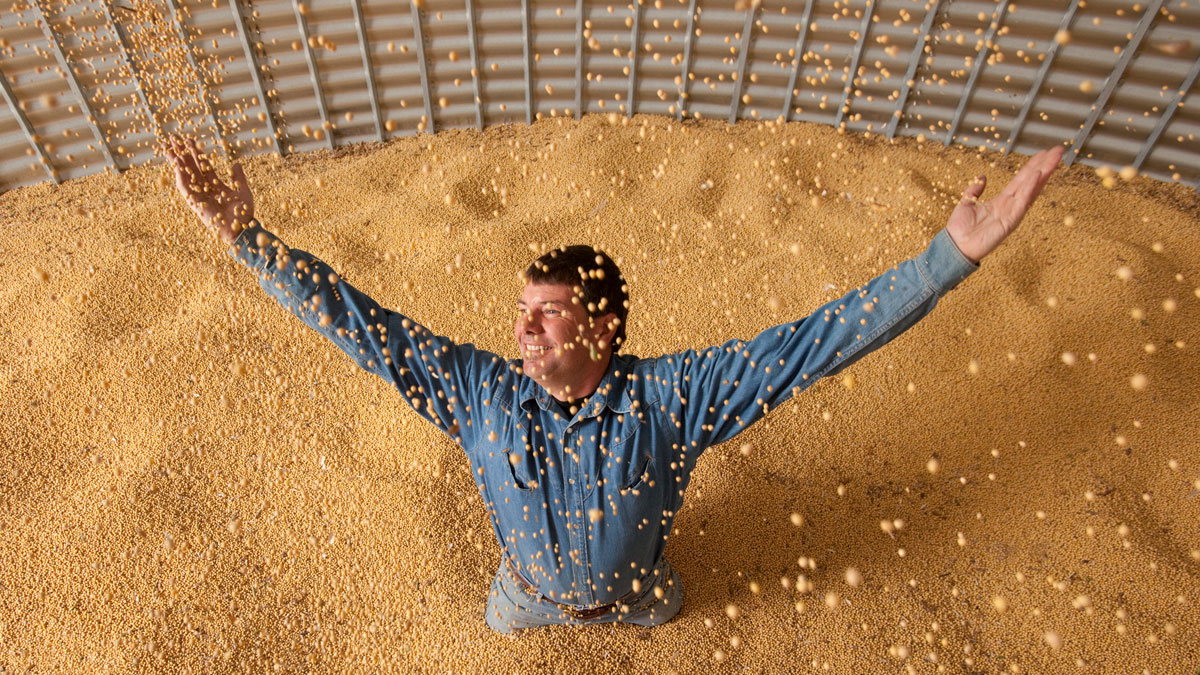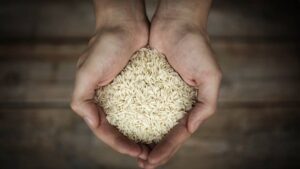CRITERION: Can these ASX ag stocks continue to make hay?

Picture: Getty Images
The fickle conditions in the agricultural sector this week resulted in a handy pay rise for one Lazarus CEO – and the exit door for another.
Over at agri-stalwart Elders (ASX:ELD), Mark Allison shelved his retirement plans to continue as CEO – a role he has held proficiently since 2014.
Allison’s $500,000 pay rise to $1.5 million is further enhanced with a $1m kicker if he is still in the job in two years – a bounteous harvest indeed.
Investors are unlikely to quibble, given Allison’s proven market worth – literally.
Elders shares lost $260 million of their worth when Allison’s departure was announced last November – albeit accompanied by ropey full-year results – and they recovered $60m on Monday’s reinstatement.
The head of fertiliser and explosives maker Incitec Pivot (ASX:IPL), Jeanne Johns was not so lucky. Last Tuesday Johns stepped down, effective immediately, amid ongoing tensions about the planned demerger of the fertiliser business amid wilting global prices and gas supply problems.
Shortly after announcing Johns’ departure, the company said its gas supplier had advised of a shortfall of the precious molecules powering its Phosphate Hill ammonium phosphate operation. That means a costly hit to full-year underlying earnings as the company sources gas from elsewhere.
A year ago, Elders was in clover amid booming soft commodity prices, good rains and the Ukraine war. Since then the shares have lost half their value.
Elders’ half-year numbers were affected by flooding and softening commodity prices – especially for cattle. Also, cockies stocked up on farm chemicals during the pandemic and have plenty of inventory in the sheds.
As a generalist purveyor of farm supplies across its ubiquitous outlets, Elders is hard hit when farmers decide not to spend.
But management is sanguine about the outlook, citing ongoing strong demand for commodities, which are expected to support “favourable trading conditions in the second [current] half.”
As is always the case with farming, ideal conditions tend to last about as long as a beer keg at a B&S ball. But are things really as crook in the bush as what the wilted share valuations imply?
Grain handler GrainCorp (ASX:GNC) pleased investors with better-than-expected interim numbers and an upgrading of full year expectations to a net result of $220-260 million, compared with the previous guided $180-220m.
Notably export facilities are at capacity, having shipped 4.4 million tonnes of grains and oilseeds – valued for renewable fuels – during the half.
The company reports average or above average rainfall in the main east coast growing areas in March and April – conducive to decent winter cropping.
GrainCorp has also upgraded its “through the cycle” earnings estimate – a long term average of good and adverse conditions – from $240 million per annum (in underlying terms) to $310 million. Insurance cover on grain receival volumes make such bold predictions more than a stab in the haystack.
Pastoral giant Australian Agricultural Company (ASX:AAC) last month reported its net profit for the year to March had collapsed to $4.6 million from $137 million previously.
This reflected a $112 million write down of the value of the company’s 433,000 cattle, given the lower prevailing prices.
Otherwise, management is – er – bullish on the demand outlook for its beasts, which these days are skewed to the in-demand Wagyu variety.
By investing in the ag sector at subdued current valuations, investors could be sowing the seeds of longer term prosperity.
Granted, the weather bureau this week said there was around double the chance of the soggy La Nina reverting to an El Nino dry pattern this year – but fell short of a declaration.
If and until the Big Dry happens, we’ll back the longer-term fortunes of a sector that feeds a world that isn’t getting any less hungry.
This story does not constitute financial product advice. You should consider obtaining independent advice before making any financial decisions.
Related Topics
UNLOCK INSIGHTS
Discover the untold stories of emerging ASX stocks.
Daily news and expert analysis, it's free to subscribe.
By proceeding, you confirm you understand that we handle personal information in accordance with our Privacy Policy.








